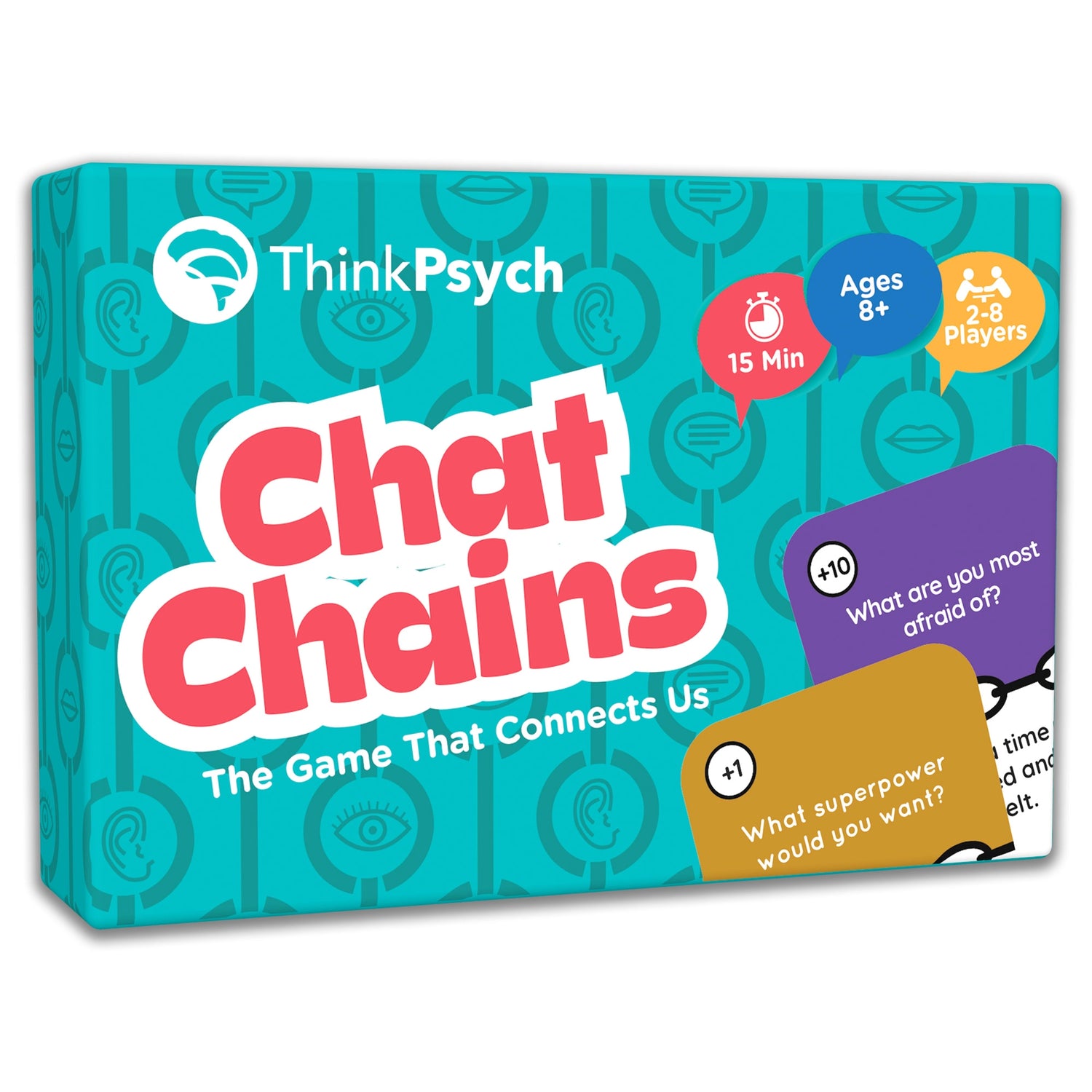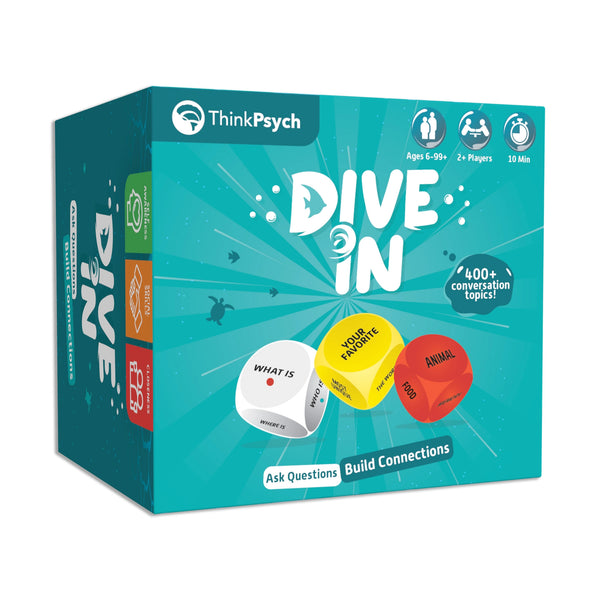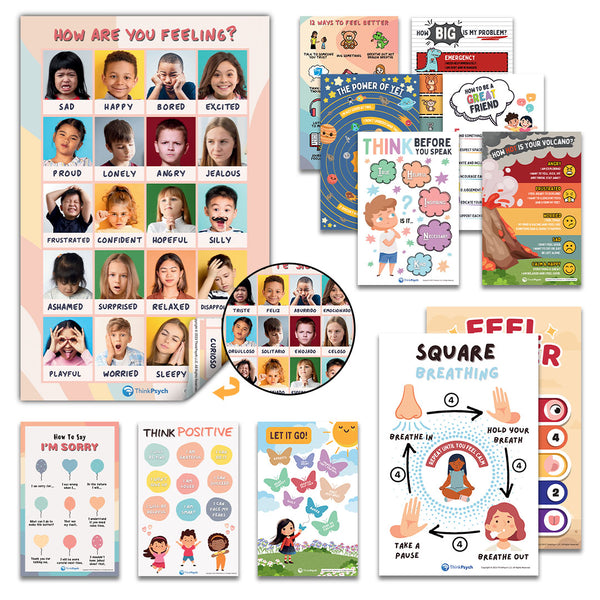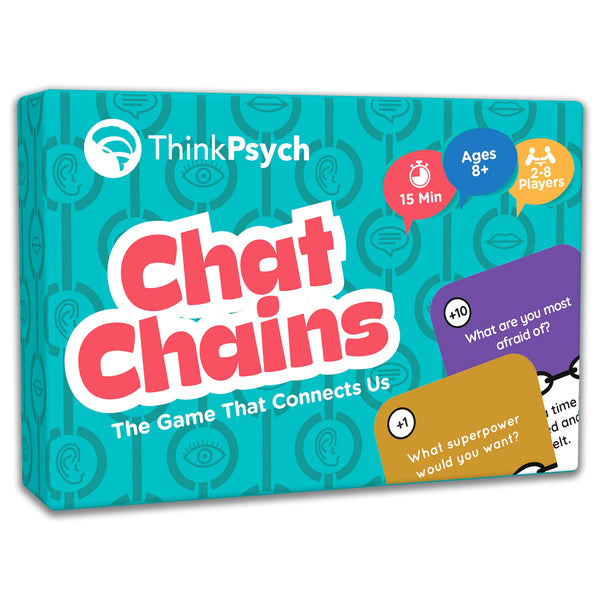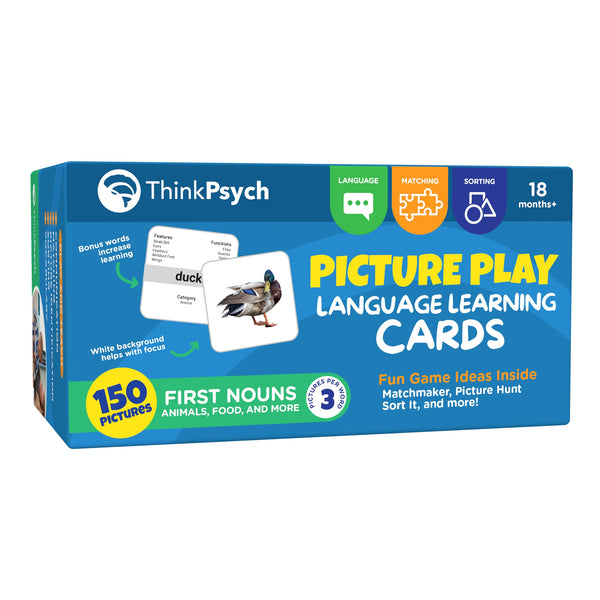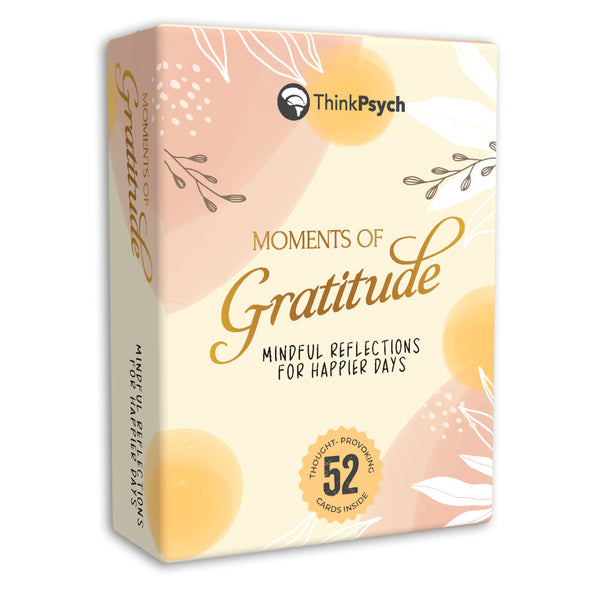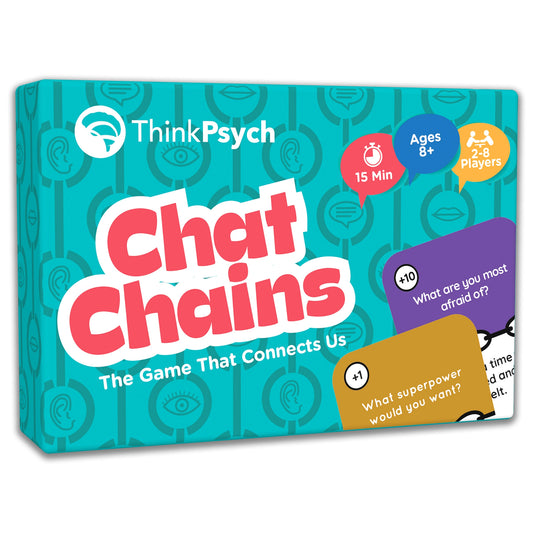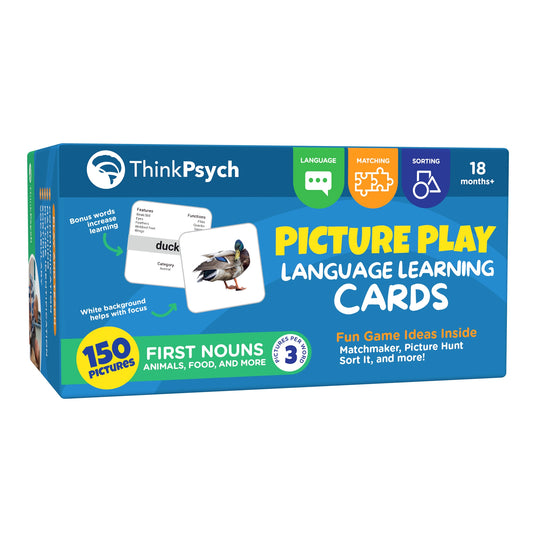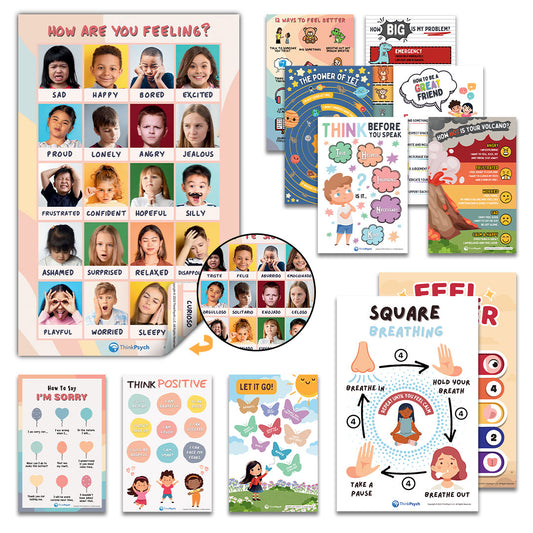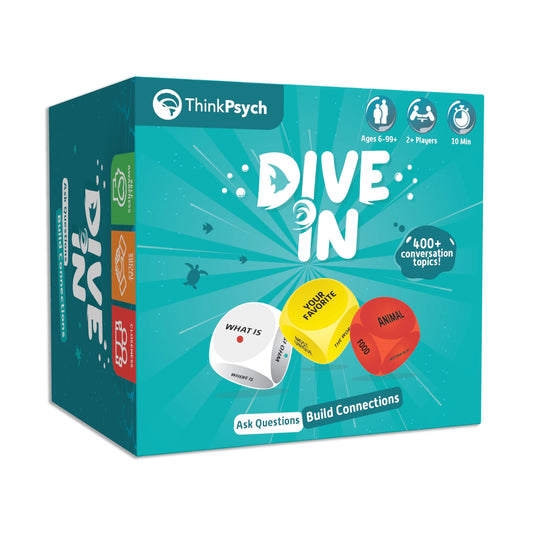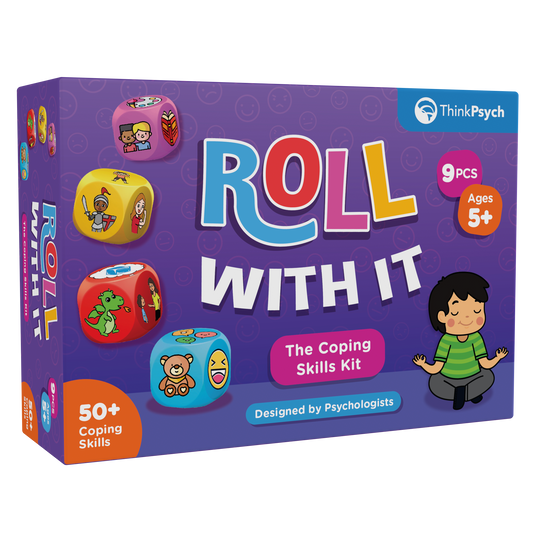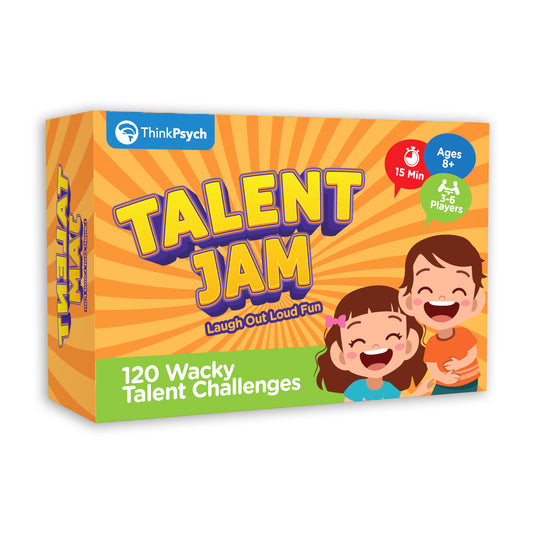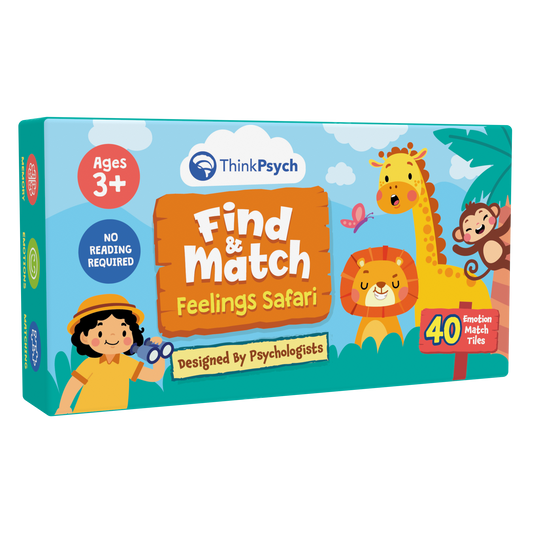
7 Boredom-Busting Strategies to Keep Your Kids Engaged
Share
It’s day 1 of winter break and already your kids have declared that there’s nothing to do. Before you pull out all the stops and start planning activities for them, take a step back.
Boredom is actually good for your kids. Even though it’s never fun to hear them complaining – it’s up there with opening the fridge and whining that there's nothing to eat – boredom is a huge opportunity for kids to discover new interests and become self-sufficient.
Here our experts at ThinkPsych have put together winning boredom-busting strategies to help you handle bored kids and encourage them to pursue their interests.
Why Boredom Is Essential for Kids
Everybody gets bored sometimes. Yet, kids today tend to be overscheduled with extracurricular activities. They’re not used to having unstructured time and usually reach for the nearest cell phone or tablet when they do.
It’s important to rethink boredom as an opportunity, or “boredomtunity” as one doctor calls it. To start, the lack of playtime can lead to kids experiencing stress and anxiety. It’s also doing your kids a disservice by not letting them develop key self-sufficiency skills.
Overall, the benefits of boredom for kids include:
- Foster creativity, problem-solving and self-expression
- Discover new interests and meaning
- Boost self-sufficiency
- Build tolerance for unenjoyable experiences (long waits, etc.)
- Regulate big emotions
- Limit screen time
Boredom-Busting Strategies for When Your Kid Is Bored
Here are our top boredom-busting strategies for rerouting your kid’s boredom and nurturing meaningful independent play.
1. Create an Activity Wheel or Jar
Coming up with activity ideas in the moment can be tough. Do you and your kid a favor by creating an activity wheel or jar. Basically, you write down ideas on slips of paper and add them to a jar. When your kid gets bored, they can head to the jar for inspiration.
2. Give Choices for Younger Kids
Younger kids may struggle to think of an activity from the open-ended question “What could you do?” Instead, it’s useful to give them 2-3 options to choose from. This points them in the right direction without overwhelming them.
Shop ThinkPsych Products
3. Encourage Your Child to Take Charge of Boredom
Your kid should take the lead on solving their boredom. Avoid becoming their go-to boredom buster by giving them your full confidence. It’s important for kids to learn how to handle unstructured time – and even enjoy it. After all, in the future your kids will have to entertain themselves during downtime at school, between errands and beyond.
4. Be Available for Their Creative Idea or Project
When your kid gets an idea that they’re excited about, be available in a supporting role. For example, if your child wants to create the longest hopscotch ever seen, make sure there’s plenty of chalk handy. For big projects, you can usually get low-cost materials by scouring the recycling bin and/or going to a craft store. Help your kid bring their vision to life by providing the tools and materials.
5. Schedule Daily Independent Playtime
Unstructured playtime should be a part of every child’s routine. Schedule a 45-minute block for your kid to play alone in their room or outside in the yard. Over time, your kid will get used to independently choosing what to do and coming up with new ideas during their “me time.”
6. Protect Weekly Family Bonding
Sometimes a bored child seeks you out for attention. Make sure you’re giving your kid enough 1-on-1 time so that they feel connected with you. It’s worth scheduling a weekly family activity, such as Friday movie night or Sunday pancakes, so that you’re strengthening bonds with your kids.
Ideas for Your Activity Wheel or Jar
As you put together an activity wheel or jar, you’ll need some fresh ideas. Below you’ll get our best picks for boredom-busting strategies:
- Do arts and crafts (painting, drawing, playdough, photography, scrapbooking, etc.)
- Build (forts, Legos, blocks, dominoes, etc.)
- Bake something
- Tell a story (reading, writing, journaling, etc.)
- Undergo a science experiment
- Invite a friend over
- Call or write a letter to grandparents
- Play a board game or puzzle
- Try make-believe games (dress-up box, puppet show, charades, role-play, etc.)
- Start a tournament or challenge (scavenger hunt, obstacle course, geocaching, etc.)
- Turn on music (dance party, sing-along, fashion show, play, dance choreography, etc.)
- Go outside for a walk or picnic
- Learn a new skill or extracurricular activity (sport, musical instrument, language, etc.)
- Do something nice for a friend, neighbor or family member (shovel driveway, walk a dog, make a care package, etc.)
- Fill a need in the community (food drive, free library, Christmas toy drive, etc.)
And if you need even more ideas, check out WonderDeck! This expert-designed card deck with 154 unique activities will inspire your kid to engage with the world around them.
Leverage ThinkPsych for Boredom-Busting Strategies and More
Give your kids the “boredomtunity” to take charge of unstructured time and discover new ways to play. Use our boredom-busting strategies and ideas to foster engagement and help your kid develop independent skills.
At ThinkPsych, we’re on the frontlines of nurturing EQ (emotional intelligence) in kids. Boredom is just one of many emotions that kids learn to manage. Find out more about fostering EQ and other key skills on our ThinkPsych blog!
References:
- Psychology Today, Boredomtunity: Why Boredom Is the Best Thing for Our Kids, https://www.psychologytoday.com
- Today’s Parent, How to Deal With a Kid Who's Always Bored, https://www.todaysparent.com
- The Conversation, ‘Mum, Dad, I’m Bored!’ How to Teach Children to Manage Their Own Boredom These Holidays, https://theconversation.com
- Metro Parent, Boredom is OK! Here are 13 Ways to Help Your Kids Embrace It, https://www.metroparent.com
- Care, 31 Things to Do When Kids Say ‘I’m Bored’, https://www.care.com
